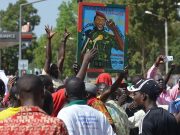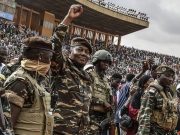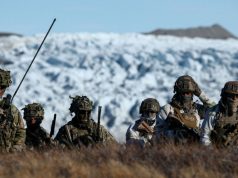When I first visited Johannesburg nearly twenty years ago, I stood near Gandhi Square, watching the city hum with life. The scent of robustness drifted through the air, and the taxis honked in that musical, maddening rhythm only large African cities understand. Later over a steaming plate of pap and T-bone steak, I got into a deep discussion about apartheid. My table-mates were two middle-aged South African men. In order to drive home the brutality of apartheid, they told me about the Sharpeville Massacre.
Just fifty kilometers southward, in a place called Sharpeville, the ghosts of 1960 still whispered. I imagined that March afternoon when South African police opened fire on a crowd protesting apartheid pass laws. Sixty-nine people were killed. Nearly two hundred more were wounded, most shot in the back as they fled. Death had arrived not as a thief in the night but as a government in uniform.
Sharpeville’s horror ignited a moral explosion. The world could no longer pretend not to see. Within days, outrage spread from the townships to the United Nations, where Resolution 134 condemned the killings. The apartheid regime responded by banning liberation movements and tightening repression, but it had lost something greater: its moral legitimacy. The massacre radicalized the African National Congress, birthed Umkhonto we Sizwe, and lit a flame of defiance that burned for three decades. That flame fueled global boycotts, divestment campaigns, and the anti-apartheid movement that pressured Western capitals to impose sanctions. By the late 1980s, the apartheid government was bankrupt financially, politically, and spiritually. In February 1990, Nelson Mandela walked free. In 1994, apartheid fell. Sharpeville had sown the seeds.
Sixty-five years later, in late October and early November 2025, death once again visited Africa through the barrels of police rifles. This time, it was not the apartheid police. It was Tanzania’s own. The government of Tanzania, once admired for its peace and unity, unleashed police and special forces against its citizens following disputed elections. Independent observers estimate between fifteen thousand and thirty thousand Tanzanians have been killed in these two weeks of terror. Many were not protesting in the streets. They were in their homes, their markets, their neighborhoods. The bullets came through windows, into doorways, into people’s homes.
Witnesses from Dar es Salaam, Arusha, Mwanza, and Dodoma describe how security forces combed through neighborhoods, rounding up young men, shooting those who resisted, and dragging others away. Some villages have no male youth left. Mothers have buried sons in secret, fearful that mourning publicly would invite another knock at the door. Doctors whisper of hospitals overwhelmed with the wounded. The State violence has been systematic, not chaotic.
When I compare Sharpeville’s sixty-nine dead to Tanzania’s thousands, I do not do so to diminish one tragedy with another. I do it to measure our silence. Sharpeville, with its sixty-nine deaths, awakened the conscience of the world. Tanzania, with its fifteen or thirty thousand, has met mostly whispers and shrugs. In 1960, the United Nations acted within days. In 2025, the African Union leadership was quick to congratulate Samia Suluhu for winning the presidential elections, even as Tanzania was descending into murderous chaos. The Western powers that once preached human rights have kept their trade ties intact. The moral landscape has shifted from outrage to indifference.
Yet Sharpeville teaches us that outrage is the beginning of justice. It is not enough to count the dead; we must demand accountability for them. Every Tanzanian killed in their home, every child shot on their doorstep, every student murdered in cold blood represents a line that cannot be crossed without consequence. If the police fired, someone gave the order. If the special forces massacred, someone wrote the plan. Responsibility climbs up the chain of command until it reaches the top.
We have seen this before. After Kenya’s 2007 post-election violence, police commanders were investigated at the International Criminal Court. The same path lies open for Tanzania, though the current regime is unlikely to cooperate. But justice has a long memory. The architects of apartheid once believed they could outwait moral pressure too. They were wrong.
Tanzania’s tragedy calls for moral outrage that is disciplined, organized, and relentless. Outrage that translates into international inquiries, sanctions on those who ordered the killings, and solidarity with Tanzanians whose voices have been drowned out by fear. Outrage that forces the African Union to remember why it exists, to protect African lives, not African regimes.
The numbers alone should jolt us: Sharpeville, sixty-nine dead; Tanzania, up to thirty thousand. One was a spark that burned down an empire. The other risks being a forest fire no one reports. Yet both are bound by the same truth: when a government turns its guns on its people, it forfeits its right to rule.
When I left Johannesburg that day, I thought of Sharpeville’s martyrs, their courage, their blood, their legacy. Today, I think of Tanzania’s victims in the same breath. History has returned to test our moral spine. Will we look away as Tanzania’s government becomes what apartheid once was? Or will we rise, as the world once rose for Sharpeville, and turn moral outrage into the power that changes everything?
My name is DJ Bwakali, and Africa is my Superpower.
























